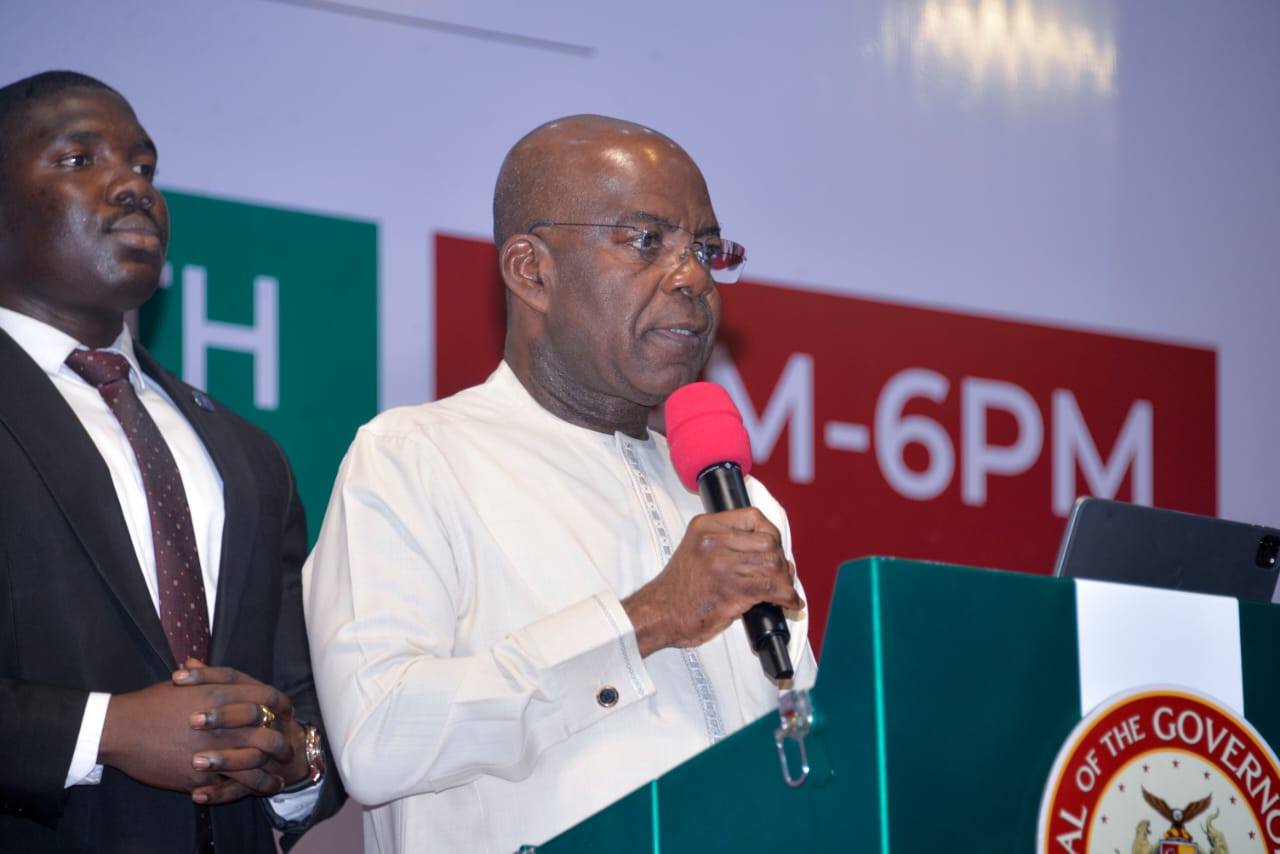Nume Ekeghe
The Group Chairman of Heirs Holdings, United Bank for Africa (UBA), Transcorp Plc, and founder of the Tony Elumelu Foundation, Mr. Tony O. Elumelu, has reiterated that Africa must take full ownership of its development journey, urging leaders on the continent to prioritise infrastructure, invest in young people, and build partnerships based on equality.
Elumelu made the remarks while delivering the keynote address at the African Caucus Meeting of the World Bank and International Monetary Fund (IMF), held in Bangui, Central African Republic, yesterday, where African leaders converged to discuss this year’s gathering, “Resilient Infrastructure, Human Capital, and Green Assets.”
In his call to action, he said: “Africa’s development is our responsibility. No one else will do it for us. Africa’s future is in our hands. No one will build this continent for us. We must lead.
“Power is everything. No industrial revolution can happen without electricity. We must prioritise energy. Without power, there can be no progress. We must invest in our youth. They are not just our future – they are our present.
“Together, by working across public and private sectors, and in partnership with institutions like the IMF and World Bank, we can build an Africa that is resilient, inclusive, and full of opportunity.
He cautioned against continued dependence on global systems that have historically failed to prioritise African interests.
“We live in a highly volatile, complex world. It is a world where the rules-based order has been challenged, where we need to reaffirm our commitment to the idea of a global community. But as an African, I must be frank. This global community has not always served Africa’s interests, ensured that Africa’s voice is heard or delivered for Africa. And Africa’s voice not only needs to be heard, but has to be heard.”
Elumelu stressed the continent holds solutions to many of the world’s pressing problems if only it chooses to harness them.
His words: “Africa has solutions to so many of the world’s problems. Our young people are the answer to the world’s demographic crisis, our minerals power the extraordinary technological changes we are experiencing, our fields can feed the world.
“But these African solutions, this African opportunity, must be on African terms, benefit African people, catalyse true value creation on the African continent. And it must be based on true partnerships, partnerships of equality and mutual respect.”
He stressed that no meaningful development can take place without solving Africa’s energy deficit, which remains one of its most urgent infrastructure needs.
“Energy access remains the biggest enabler or barrier to our progress. Up to 70 per cent of our people lack electricity. My home country, Nigeria, generates less than 7,000 MW for over 200 million people.
“If we are to industrialise, create jobs, and participate meaningfully in the global AI revolution, we must invest aggressively in energy from renewables to cleaner gas-based solutions. Imagine what Nigeria’s economy could become with 100,000 megawatts of reliable, affordable energy. That is the scale of transformation we need. And the story is not different across Africa.”
Through his Group’s investments in power and oil and gas, Elumelu illustrated what private capital can achieve when focused on public challenges. “Through our investments in Transcorp and Heirs Energies, we are working to solve this challenge generating power, exporting it through the West African Power Pool, and using gas from our oil operations to power our plants. This is Africapitalism in action: private capital solving public challenges.”
At the core of his Africapitalism philosophy is a belief in the power of entrepreneurship and the need for governments to play an enabling role. “Africapitalism is the belief that the African private sector must take the lead in driving economic development. It is about long-term investments in key sectors that create both economic returns and social impact.”
“To succeed, we need strong partnerships. Governments must create the right environment. Private sector must bring capital and innovation. And our development partners must support Africa’s realities including recognising gas as a viable transition fuel on our path to clean energy.”
Elumelu also stressed the importance of investing in Africa’s most valuable resource, its youth. “No resource is more valuable than our people – especially our youth. Africa is the youngest continent on earth, with over 60 per cent of our population under 35. This presents both our greatest asset or our greatest risk.”
He referenced the undertakings of the Tony Elumelu Foundation as a practical intervention. “At the Tony Elumelu Foundation, we have empowered over 24,000 young entrepreneurs across all 54 African countries. Each with a non-refundable seed capital of $5,000. Trained 1.5m youth. Catalysed 1.2m jobs. These entrepreneurs are creating jobs, building businesses, and changing lives.”
Elumelu praised current multilateral focus on Africa, noting, “I commend the growing focus of global institutions on Africa. I sit on the IMF Advisory Council on Entrepreneurship and Growth, and I’m pleased with our emphasis on job creation as a path to lasting growth. I also applaud Ajay Banga’s ‘Mission 300’ initiative at the World Bank, an ambitious goal to connect 300 million Africans to power.
“Africa is ready. Let’s seize this moment and build the prosperous, empowered continent our people deserve.”
The post Elumelu: Africa Must Lead Own Devt, Bridge Infrastructure, Energy Gaps appeared first on THISDAYLIVE.



